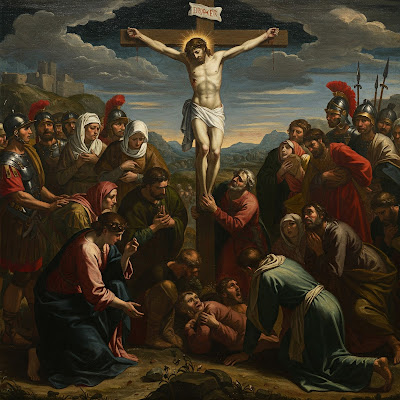“It Is Finished” — The Victory of the Cross and the End of Striving
John 19:30
Among the final words Jesus spoke on the cross, none carry more power and finality than these three:
“It is finished.” (John 19:30)
In Greek, the word used is “Tetelestai,” a term that means “paid in full” or “completely accomplished.” It was a word used to declare the completion of a transaction or mission — nothing more to add, nothing left undone.
In that one moment, Jesus wasn’t just announcing the end of His suffering — He was declaring the fulfillment of God’s eternal plan. And today, this truth still echoes with freedom, hope, and peace for a world that’s constantly striving.
1. The Mission of Salvation Was Completed
“For the Son of Man came to seek and to save the lost.”
(Luke 19:10)
Jesus came to live the perfect life we couldn’t live and to die the death we deserved. At the cross, He bore the full weight of humanity’s sin — and when He said “It is finished,” it meant the price had been paid.
“He himself bore our sins in his body on the tree…”
(1 Peter 2:24)
“By a single offering he has perfected for all time those who are being sanctified.”
(Hebrews 10:14)
There is nothing we can do to add to what Jesus already accomplished. The debt is paid in full.
2. The Power of Sin and Death Was Defeated
“The reason the Son of God appeared was to destroy the works of the devil.”
(1 John 3:8)
Jesus’ death was not a loss — it was a cosmic victory. On the surface, it looked like defeat, but spiritually, He was crushing the power of sin, hell, and the grave.
“He disarmed the rulers and authorities and put them to open shame, by triumphing over them in him.”
(Colossians 2:15)
In today’s world, where fear, guilt, addiction, and shame still enslave people, Jesus’ words remind us that the chains are already broken — we are free through faith in Him.
3. The Old Covenant Was Fulfilled and the New Began
“Do not think that I have come to abolish the Law or the Prophets; I have not come to abolish them but to fulfill them.”
(Matthew 5:17)
Jesus fulfilled every requirement of the Law. The sacrifices, the priesthood, the rituals — all pointed to Him. When He said “It is finished,” He signaled the end of the old system and the beginning of a new covenant based on grace, not works.
“This cup is the new covenant in my blood, which is poured out for you.”
(Luke 22:20)
4. We Can Stop Striving for Approval
In our world, we are constantly told to do more, be more, and achieve more to be accepted. But the cross speaks a different word:
“It is finished.”
“There remains a Sabbath rest for the people of God… whoever has entered God’s rest has also rested from his works.”
(Hebrews 4:9–10)
Through Jesus, we are fully accepted, not because of what we’ve done, but because of what He has finished.
This truth frees us from the exhausting pursuit of perfection — spiritually, emotionally, and socially.
5. The Work Continues Through Us, But Not By Us
“It is finished” doesn’t mean we have nothing to do — but it means that everything we do now flows from Christ’s finished work, not our own efforts.
“For we are his workmanship, created in Christ Jesus for good works…”
(Ephesians 2:10)
We serve, love, forgive, and build His kingdom not to earn salvation, but as a response to it. The work is finished — and now we live in the joy of that victory.
Conclusion: Living in the Victory of “It Is Finished”
Jesus’ final words weren’t the sigh of a defeated man — they were the shout of a King who had completed His mission.
In today’s anxious, achievement-driven world, “It is finished” offers us:
- Peace in place of performance.
- Freedom from guilt and shame.
- Confidence that our salvation is secure.
- Hope that the battle is already won.
So today, rest in the truth that nothing more needs to be added.
Jesus has already done it all.
It is finished.
